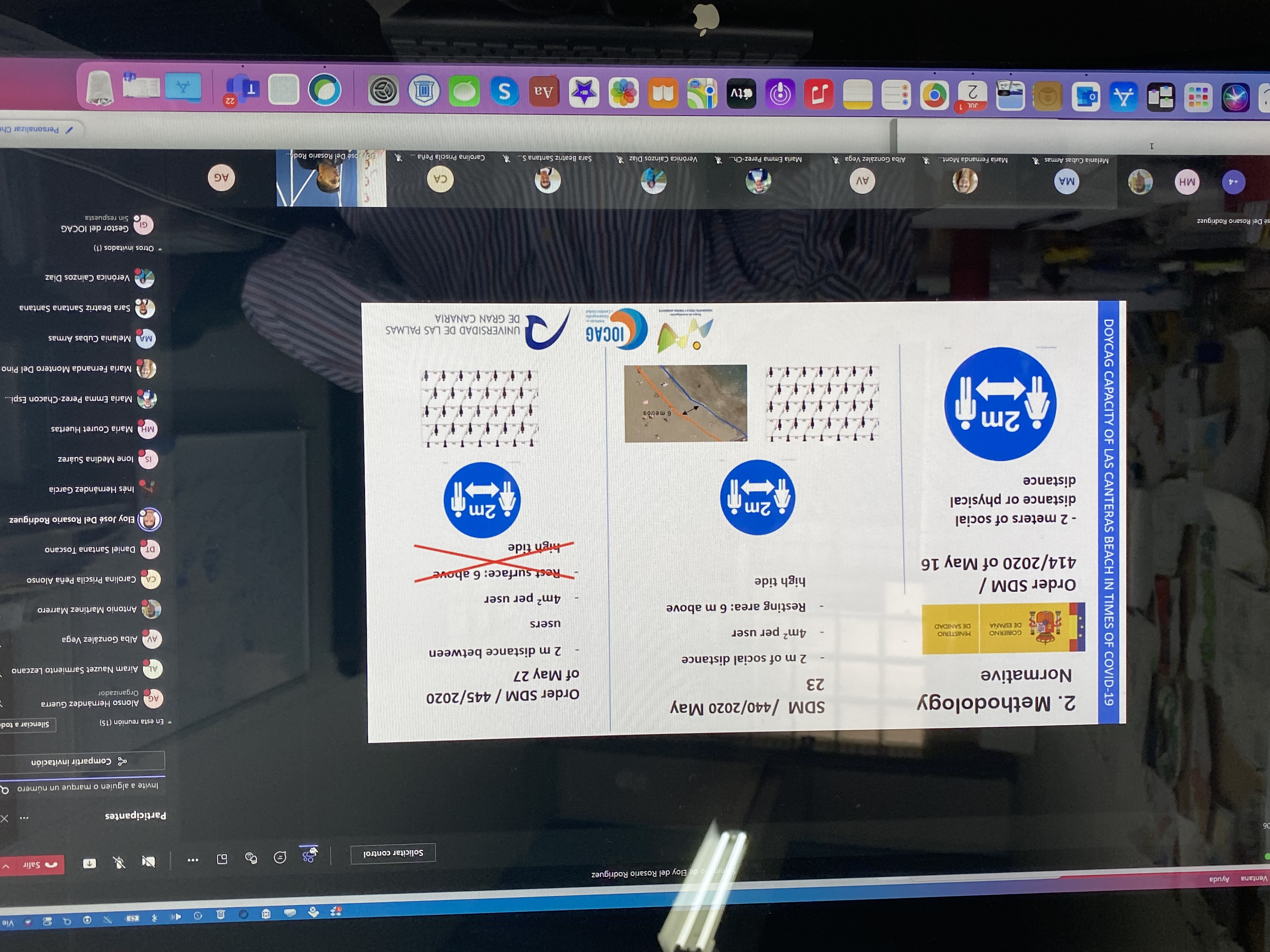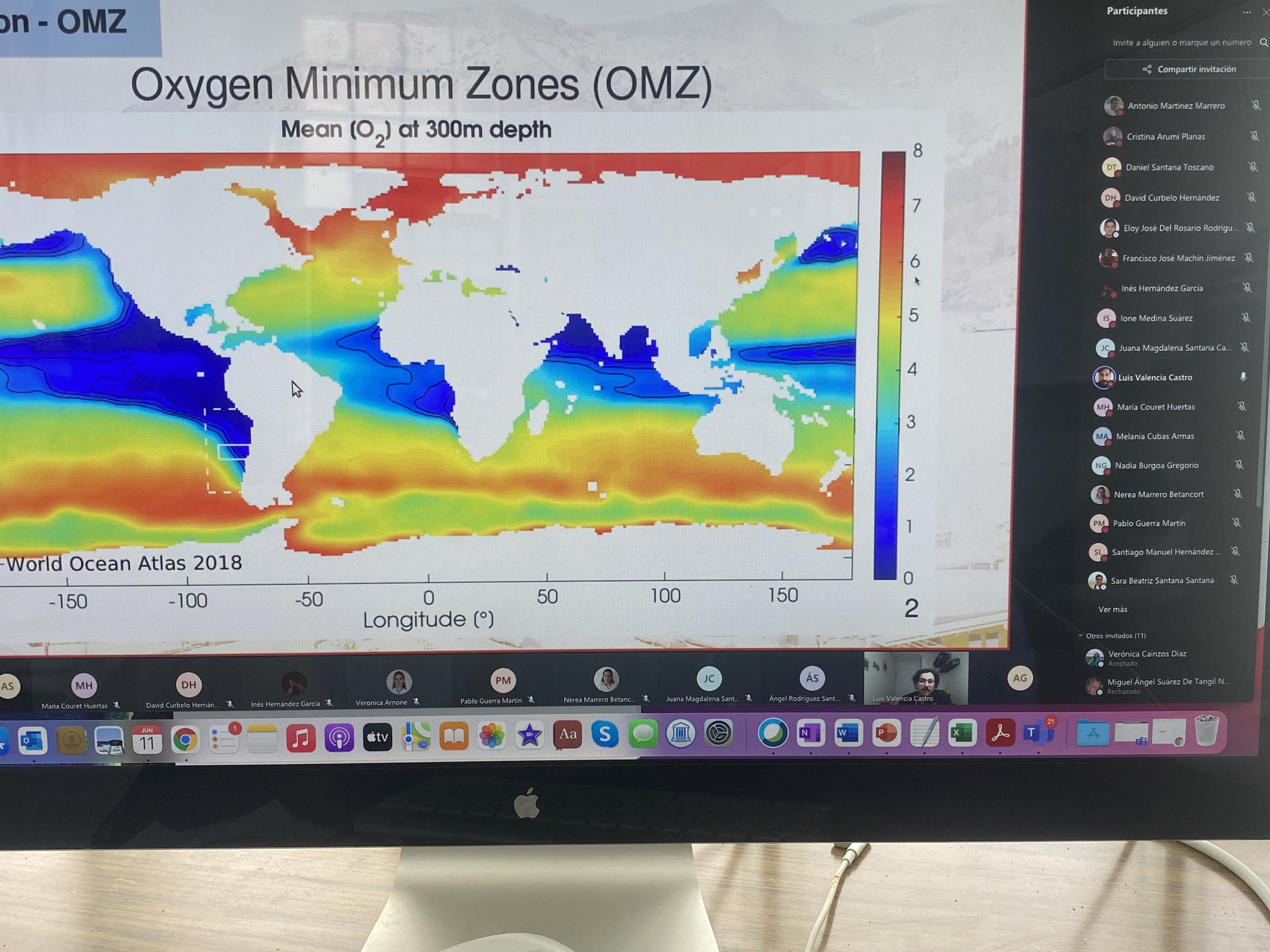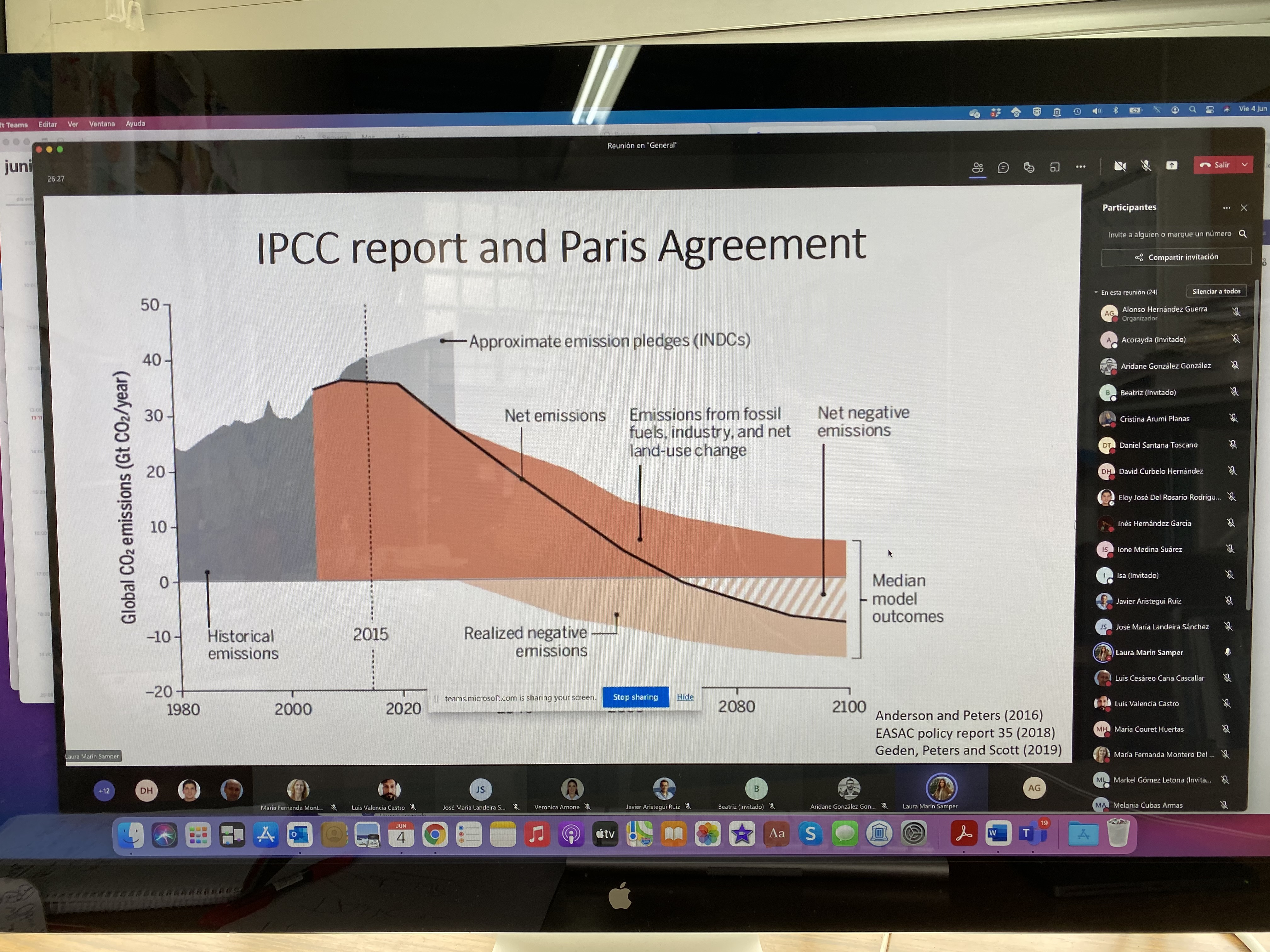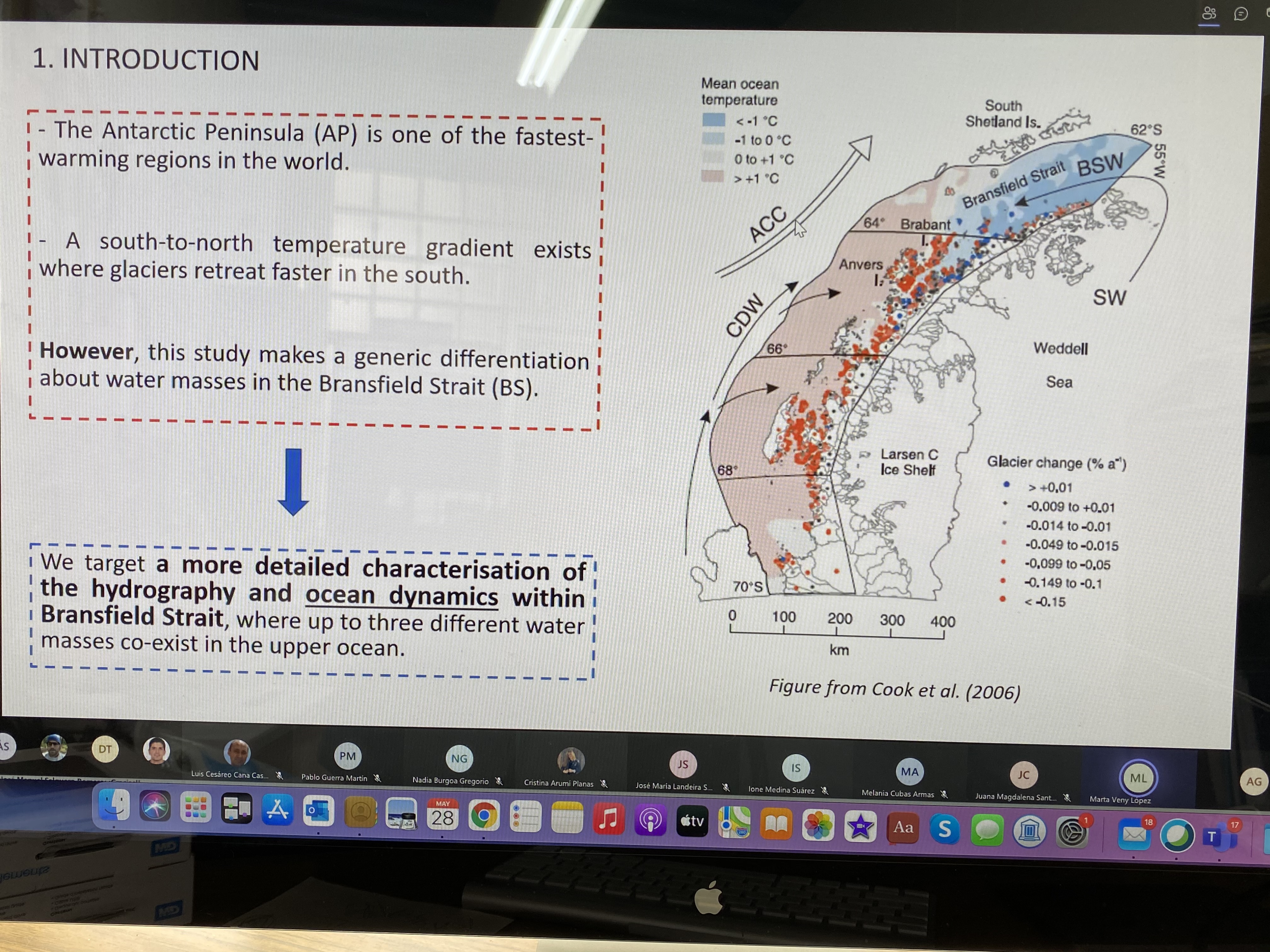Miguel A. Gutierrez Guerra (Ph.D. student):A new index to determine the changes in the four principals Eastern Boundary Upwelling Systems under Climate Change.
The Eastern Boundary Upwelling Systems (EBUSs) provide valuable natural resources due to the high primary production, however anthropogenic forces could affect directly the basis of these ecosystems: the upwelling. Therefore, assessing the impacts of Global Warming on the upwelling processes is crucial for efficient ecosystem management. In spite of that, there is high uncertainty about the future of these upwelling systems under climate change. In 1990, Bakun suggested an increase in the intensity of upwelling due to an increase in the ocean-land pressure gradient.
Javier Díaz Pérez (Ph.D. Student): Spatial assemblages of micronektonic crustaceans (Decapoda, Euphausiacea and Lophogastrida) support pelagic ecoregions along a latitudinal transect in the Atlantic Ocean.
The micronekton community of pelagic shrimps was studied by means of taxonomic composition, abundance and biomass analysis, across a latitudinal transect in the Atlantic Ocean from off Brazil coast (15ºS) to the south of Iceland (55ºN). Total abundance and biomass were sampled by Mesopelagos net with a mouth opening of 5 x 7 m and a total length of 58 m. Vertical variation of temperature, conductivity, pressure, dissolved oxygen and fluorescence were recorded by CTD profiler.
PhD presentation José Luis García García 21th May 2022
José Luis explained during his online presentation his research entitled: "Biogeochemical and microbial impacts of sub-mesoscale processes along the life history of mesoscale eddies in the Canary Eddy Corridor (e-IMPACT)".
A summary of José Luis' study can be read here.
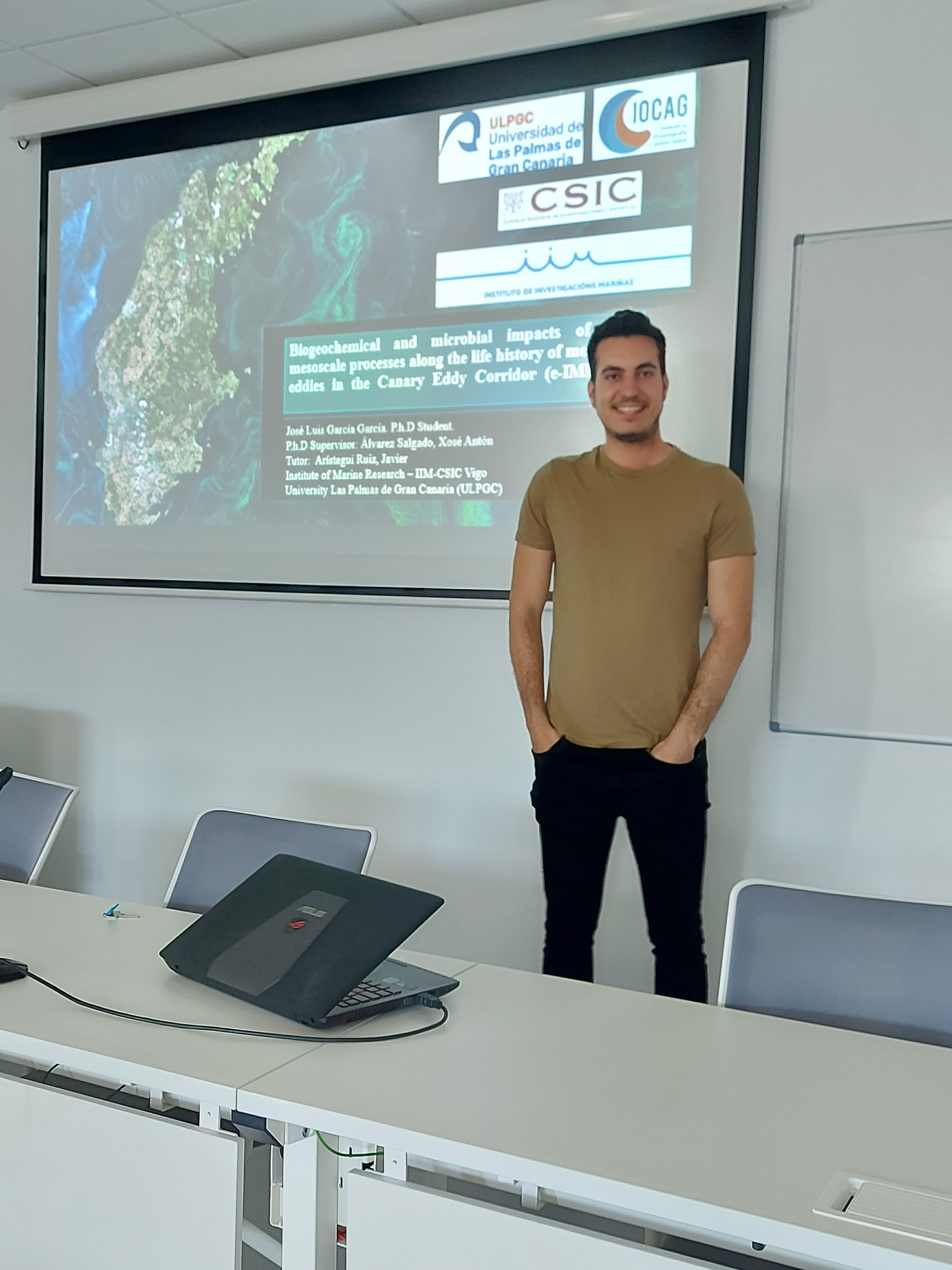
José Luis García García (Ph.D. student):Biogeochemical and microbial impacts of sub-mesoscale processes along the life history of mesoscale eddies in the Canary Eddy Corridor (e-IMPACT)
The project e-Impact aims at quantifying the contribution of sub-mesoscale processes associated with mesoscale cyclonic and anticyclonic eddies on the biological carbon pump in the Canary Eddy Corridor (North Atlantic Subtropical gyre). Mesoscale eddies are self-rotating coherent water bodies that can propagate long distances through the oceans, in many cases forming westward propagating eddy corridors.
PhD presentation Eloy José del Rosario Rodríguez 2nd July 2021
Eloy del Rosario explained during his online presentation his research entitled: "Geographic methodologies and tools for sustainable beach management: application to littoral sedimentary systems of the Canary Islands (Spain)".
PhD presentation Luis Valencia Castro 11th June 2021
Luis Valencia explained during his online presentation his research entitled: "Oxygen Minimum Zone Variability at the Juan Fernandez Ridge (~33°S): The role of mixing processes and the influence of mesoscale eddies".
PhD presentation Laura Marín Samper 4th June 2021
Laura Marín explained during her online presentation her research entitled: "Potential impacts of artificial ocean alkalinization on primary production, phytoplanktonic and microbial community structure, and on the biogeochemical fluxes they regulate".
PhD presentation Marta Veny López 28th May 2021
Marta Veny explained during her online presentation her research entitled: "Spatio-Temporal Variability of the Bransfield Current (Antarctica)".
PhD presentation Daniel Santana Toscano 21st May 2021
Daniel Santana explained during his online presentation his research entitled: "Western Boundary of the North Atlantic Subtropical gyre: Decadal Change".
PhD presentation Cristina Arumí Planas 14th May 2021
Cristina Arumí explained during her online presentation her research entitled: “Meridional overturning circulation at 30ºS in the Pacific Ocean: 1992, 2003, 2009 and 2017”.
